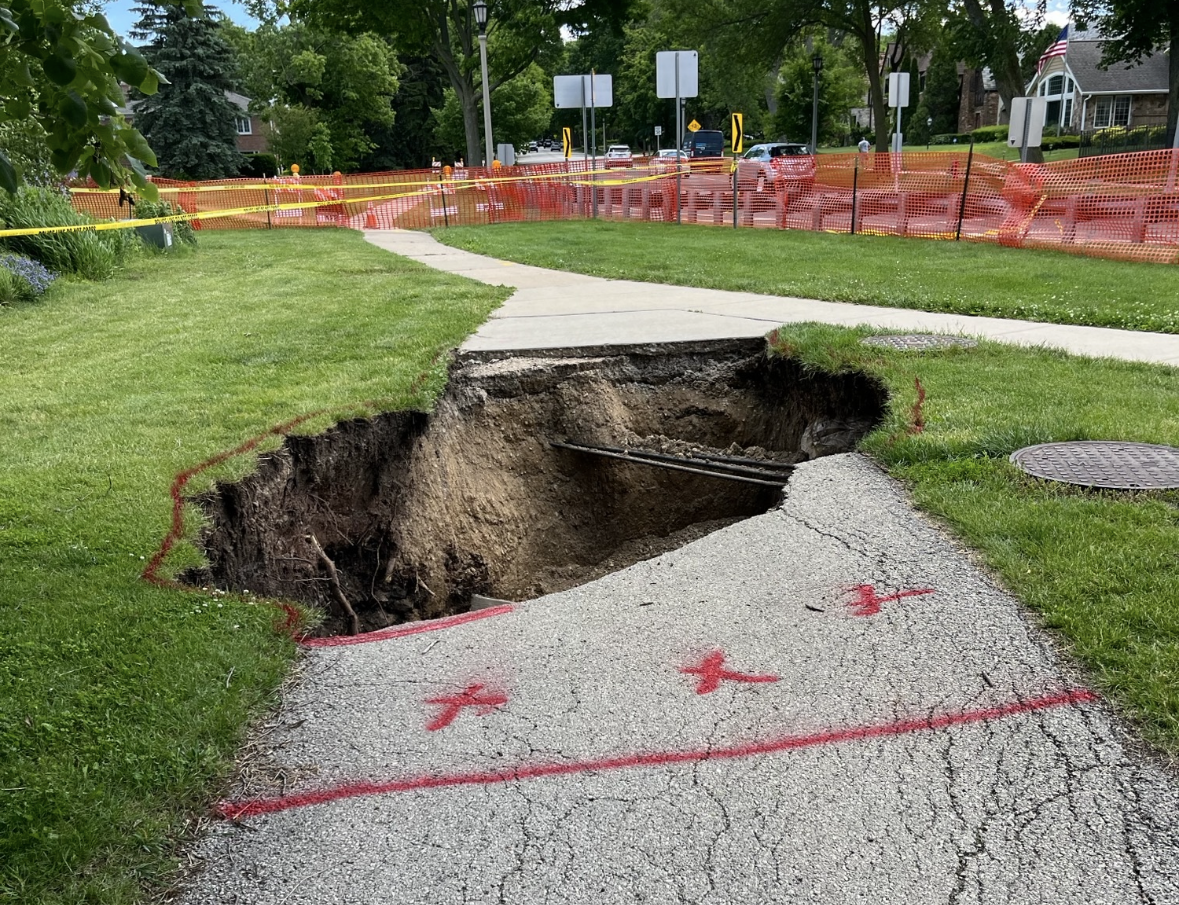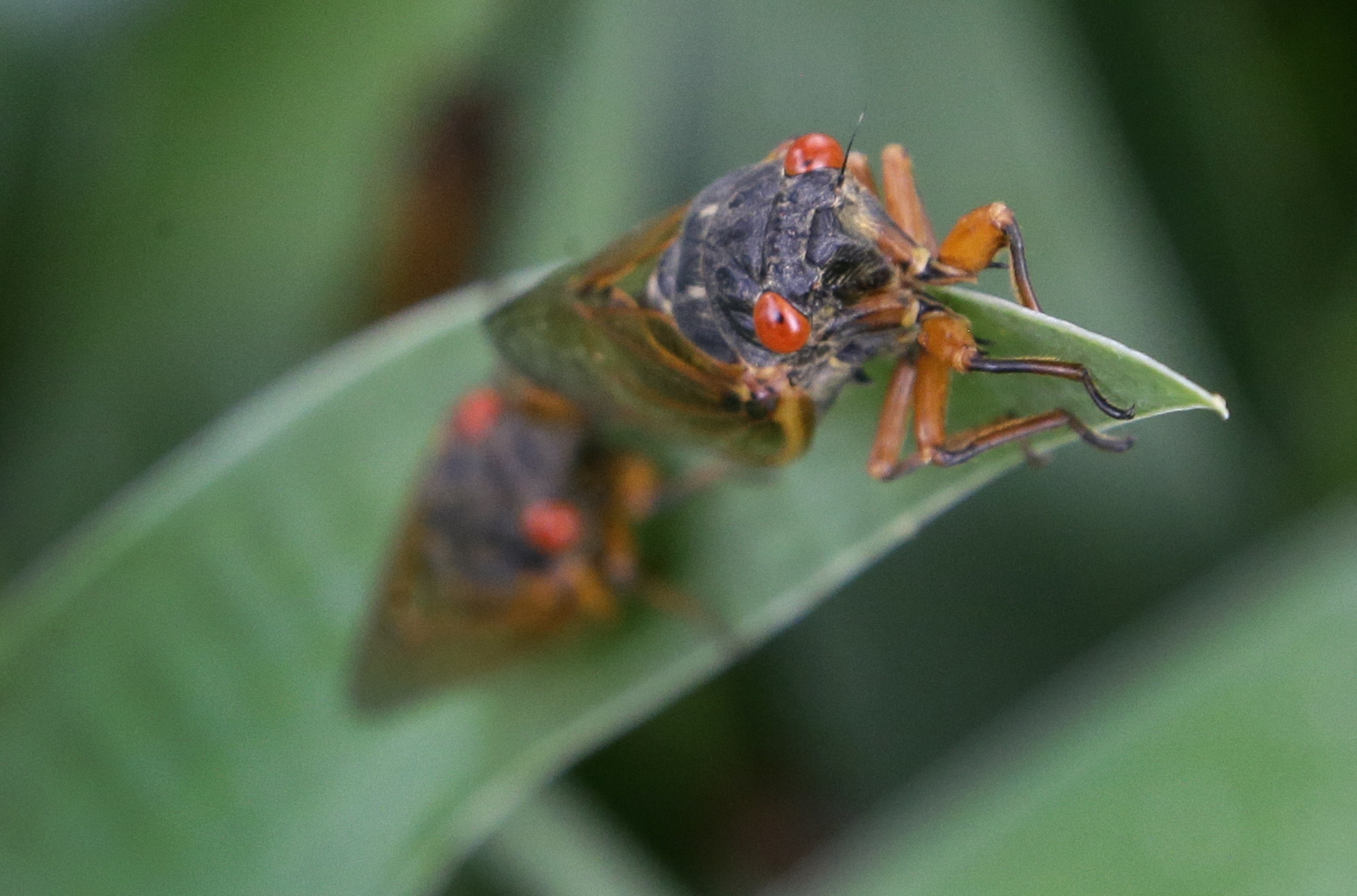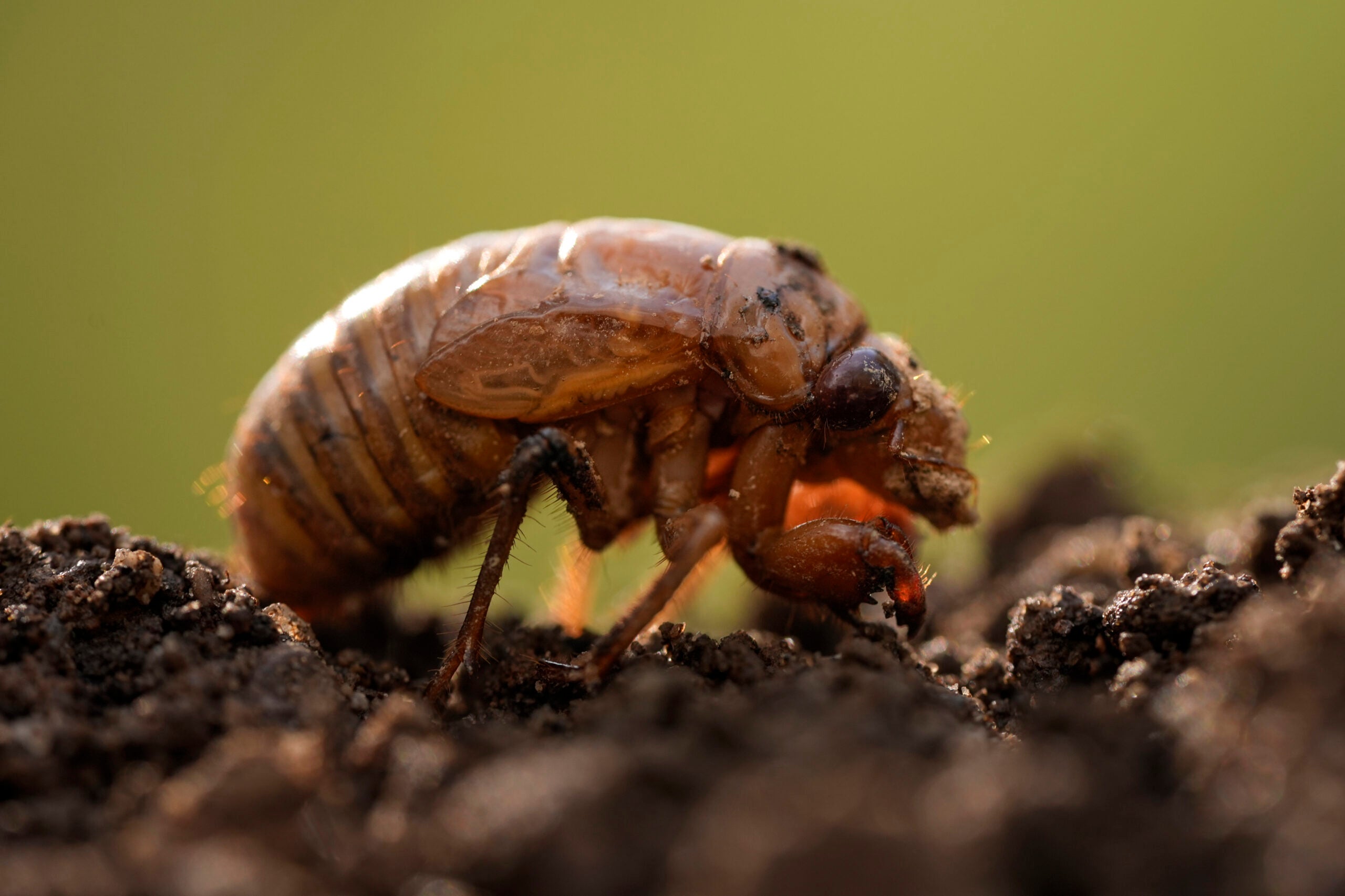As trillions of cicadas have emerged nationwide this spring, the Wisconsin Department of Natural Resources is warning people it’s illegal to harvest them at state parks.
The agency said it’s received multiple reports of people harvesting the insects at Big Foot Beach State Park in Lake Geneva as a brood of cicadas has emerged there for the first time in 17 years. While it hasn’t happened in Wisconsin, parts of the country have witnessed two broods of cicadas emerge simultaneously this year for the first time in 221 years.
So why are people harvesting them?
It’s not exactly clear, and the DNR has been mum on the details. PJ Liesch, an extension entomologist at the University of Wisconsin-Madison, said he’s heard the cicadas are possibly being collected and sold to a market in the Chicago area.
“I would suspect as a food, but I don’t know the exact details or where the market is specifically located,” Liesch said.
The DNR warned that state code bars people from capturing or removing animals, including insects, from state parks with limited exceptions that don’t include the collection of cicadas.
Stay informed on the latest news
Sign up for WPR’s email newsletter.
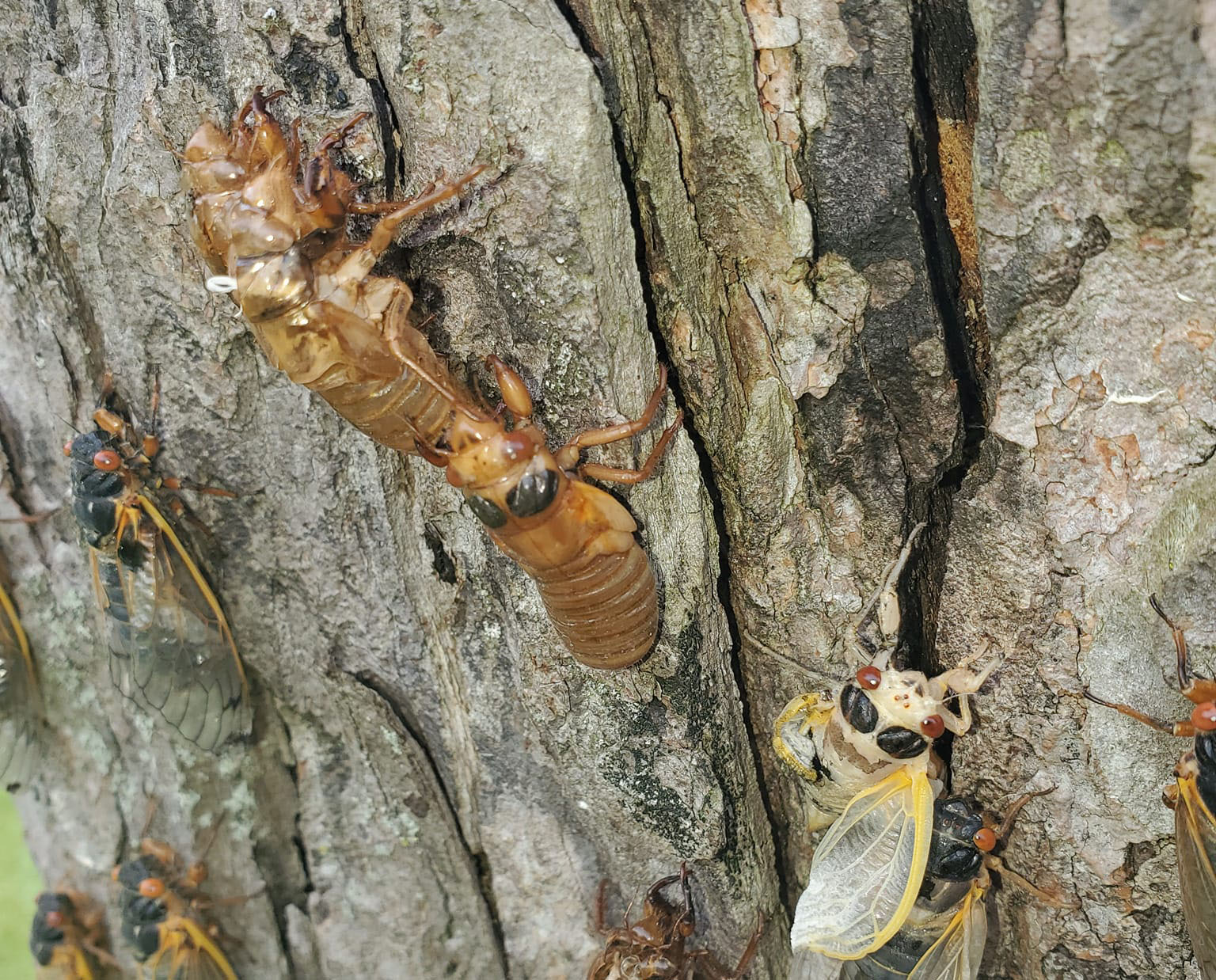
Periodical cicadas are black with reddish-orange eyes, and they’re about an inch or more in length with vein-like wings. Cicada nymphs, or juveniles, are generally brown when they emerge. They’re harmless to people and pets. Even so, they can be considered a nuisance with their near-constant buzzing or singing to attract mates, which can be louder than a vacuum cleaner.
Penny Roehrer is a Lake Geneva resident and former treasurer for the Friends of Big Foot Beach State Park. She said it’s been pretty noisy in downtown Lake Geneva, although the buzzing subsided somewhat after the weekend’s storms. But the bugs were still singing outside her home Monday morning.
“I think they’re probably harvesting them to eat, which is not a good thing,” Roehrer said. “I mean, they need to do their stuff so they can procreate.”
Liesch said the cicadas were reportedly being removed from the park in very large numbers, prompting concerns about the future of the population in that area.
“My understanding is that they were being collected live. And if enough were collected that it interfered with the ability of females in the population to lay eggs, that could be a concern for future numbers potentially,” Liesch said. “But again, it’s really hard to tell at this point because I don’t know how many were ultimately collected (and) if those individuals were collected after they had laid eggs versus prior to laying eggs.”
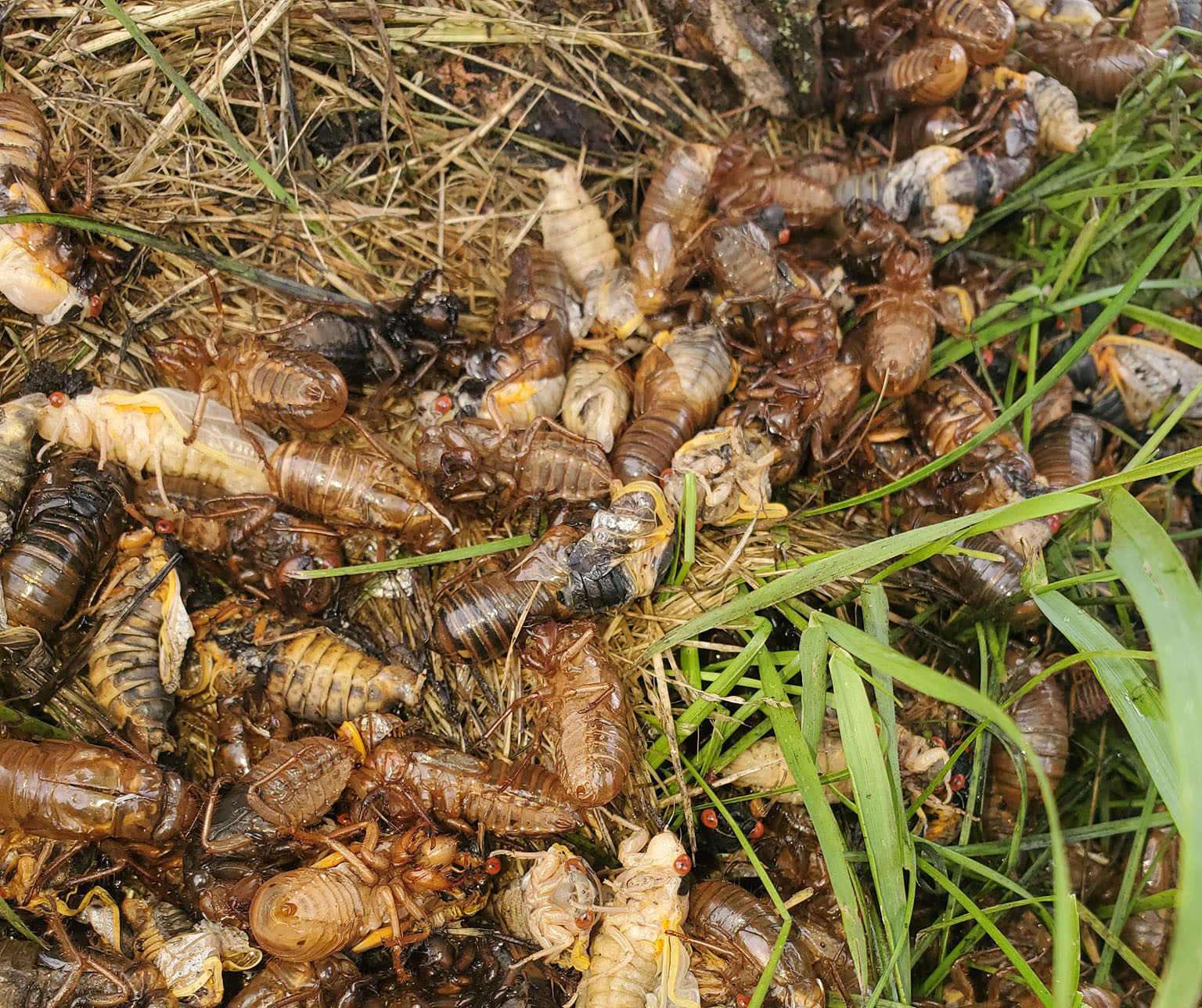
Big Foot Beach State Park isn’t the only place where people have been spotted collecting the bugs. Neil Waswo, public works superintendent for Lake Geneva, said he’s observed a handful of people in the city’s lakefront parks in the early morning hours collecting the critters.
“We’ve noticed since the cicadas came out that there were people that would be walking through the parks with garbage bags and buckets and filling them up with cicadas that they were finding on the ground and on the trees,” Waswo said.
Unlike the state, Waswo said the city doesn’t have any regulations prohibiting their removal. City crews haven’t asked why they’re collecting cicadas. Even so, Waswo said he suspects they’re being harvested for food, leaving some staff scratching their heads.
“Why would you pick up bugs when you (could) go to the store and eat a steak instead of eating cicadas?” Waswo said.
The bugs are a good food source for a wide range of wildlife, and Liesch noted other countries consume them as a regular part of their diet.
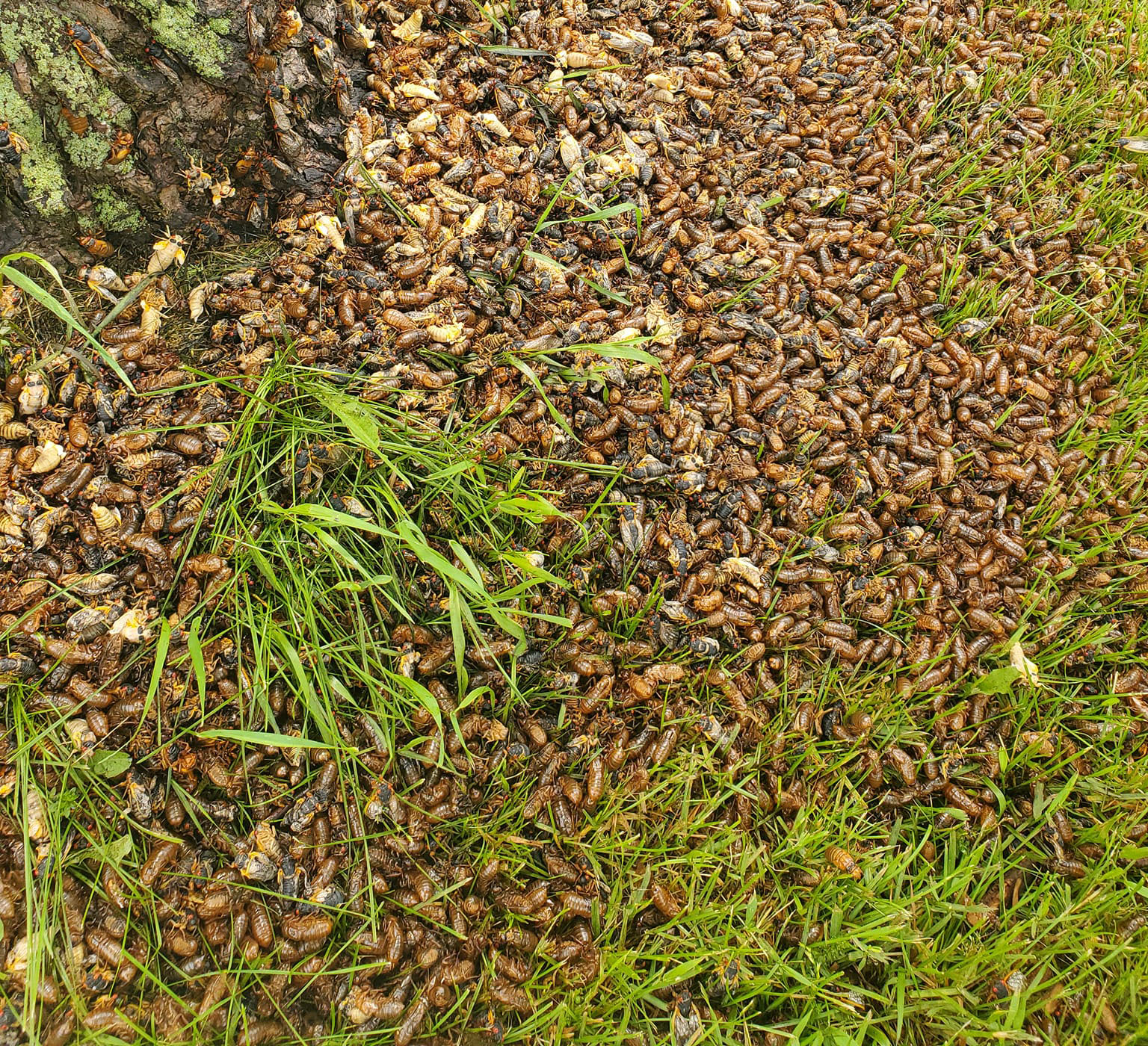
Earlier this month, the university’s entomology department took part in Cicadapalooza, which included cicada-themed foods. Liesch said that included dishes like cicada gumbo and desserts with chocolate-covered cicadas. However, he noted the event included a relatively small number of critters in comparison to those harvesting them on a regular basis.
The emergence of periodical cicadas has captured the attention and imagination of people around the state and country, Liesch said. The two broods that appeared this year are Brood XIII, a 17-year periodical cicada, and Brood XIX, which emerges every 13 years. Liesch said Wisconsin has seen the typical emergence of Brood XIII, which spans northern Illinois, eastern Iowa, southern Wisconsin and a small part of Indiana.
“I think it’s great that so many people were interested in these insects. They are a fascinating natural phenomenon that we only get to see once every 17 years here in the state of Wisconsin, so that’s really unique and cool in its own right. But it’s something that we should really celebrate and respect,” Liesch said. “It was very unfortunate to hear about the mass collection of these.”
By now, periodical cicadas have mated as they approach the tail end of their season. The insects first emerged around May 17 near Lake Geneva, and the adults only live for roughly a month or so. Any cicadas that are still alive will likely die and fall to the ground within the next week or two.
Wisconsin Public Radio, © Copyright 2024, Board of Regents of the University of Wisconsin System and Wisconsin Educational Communications Board.



